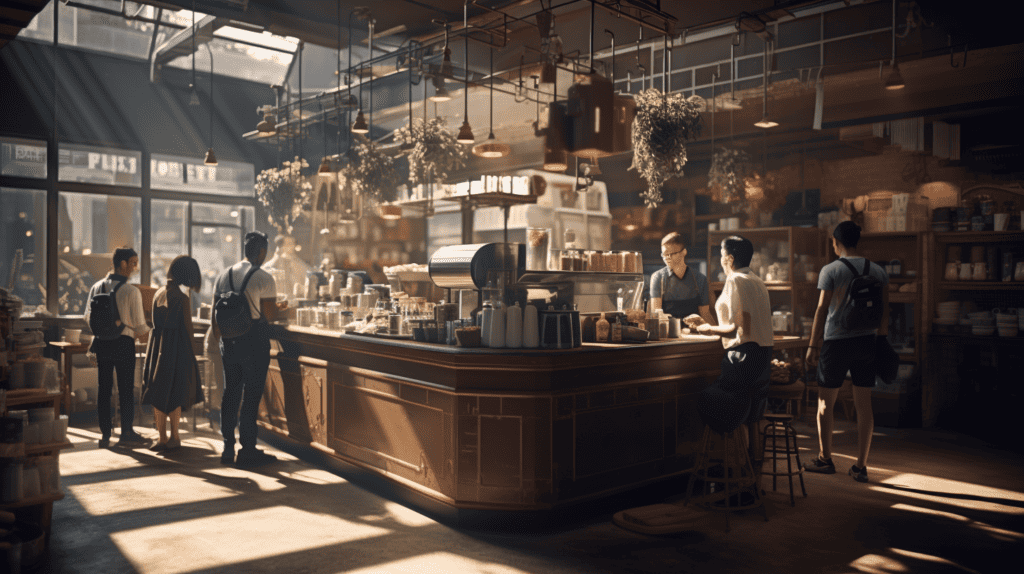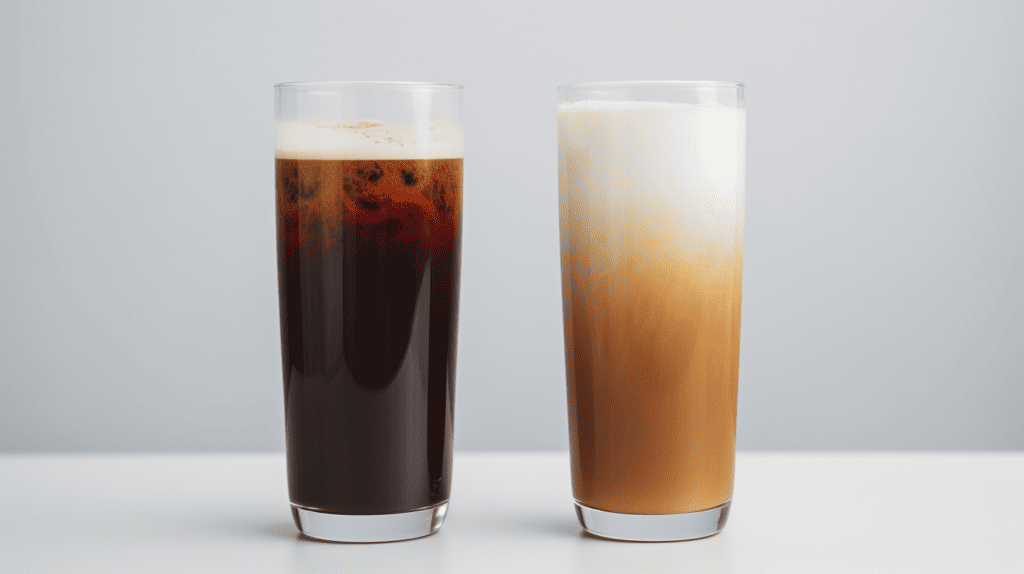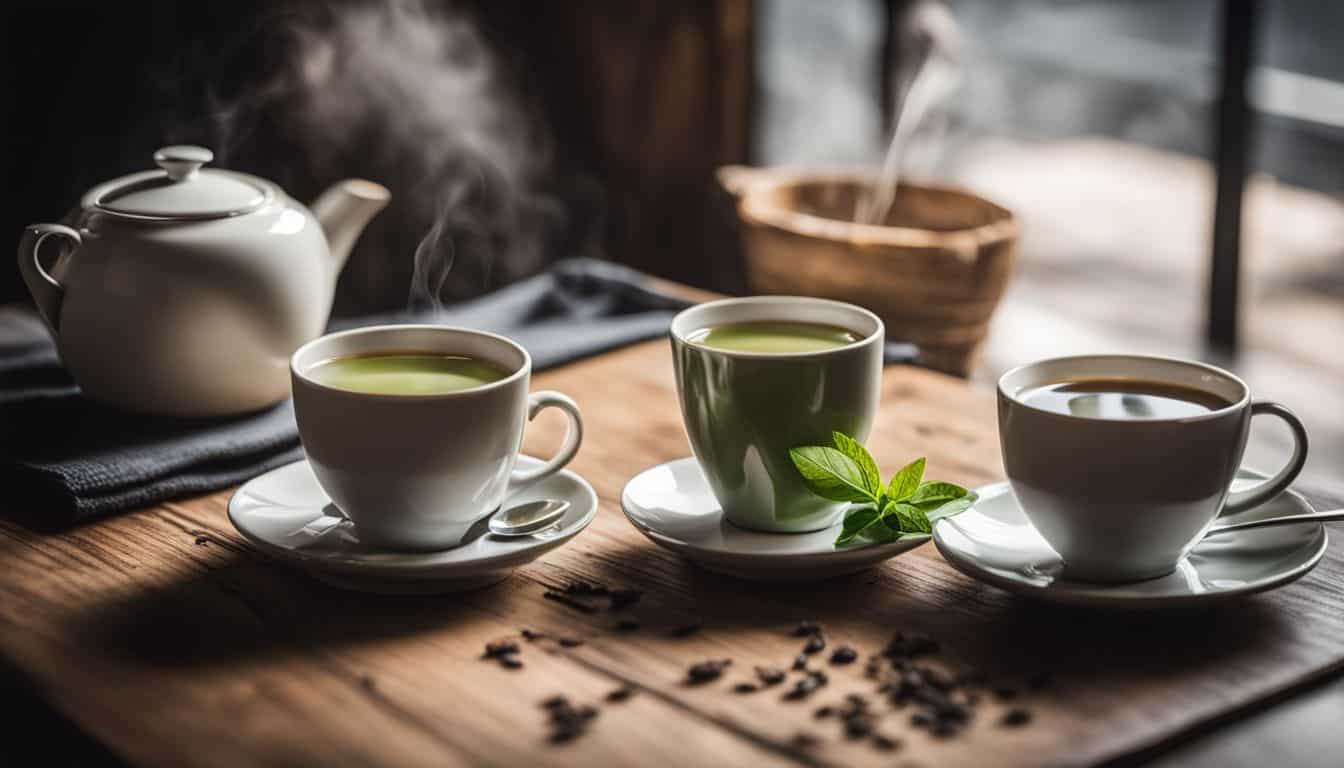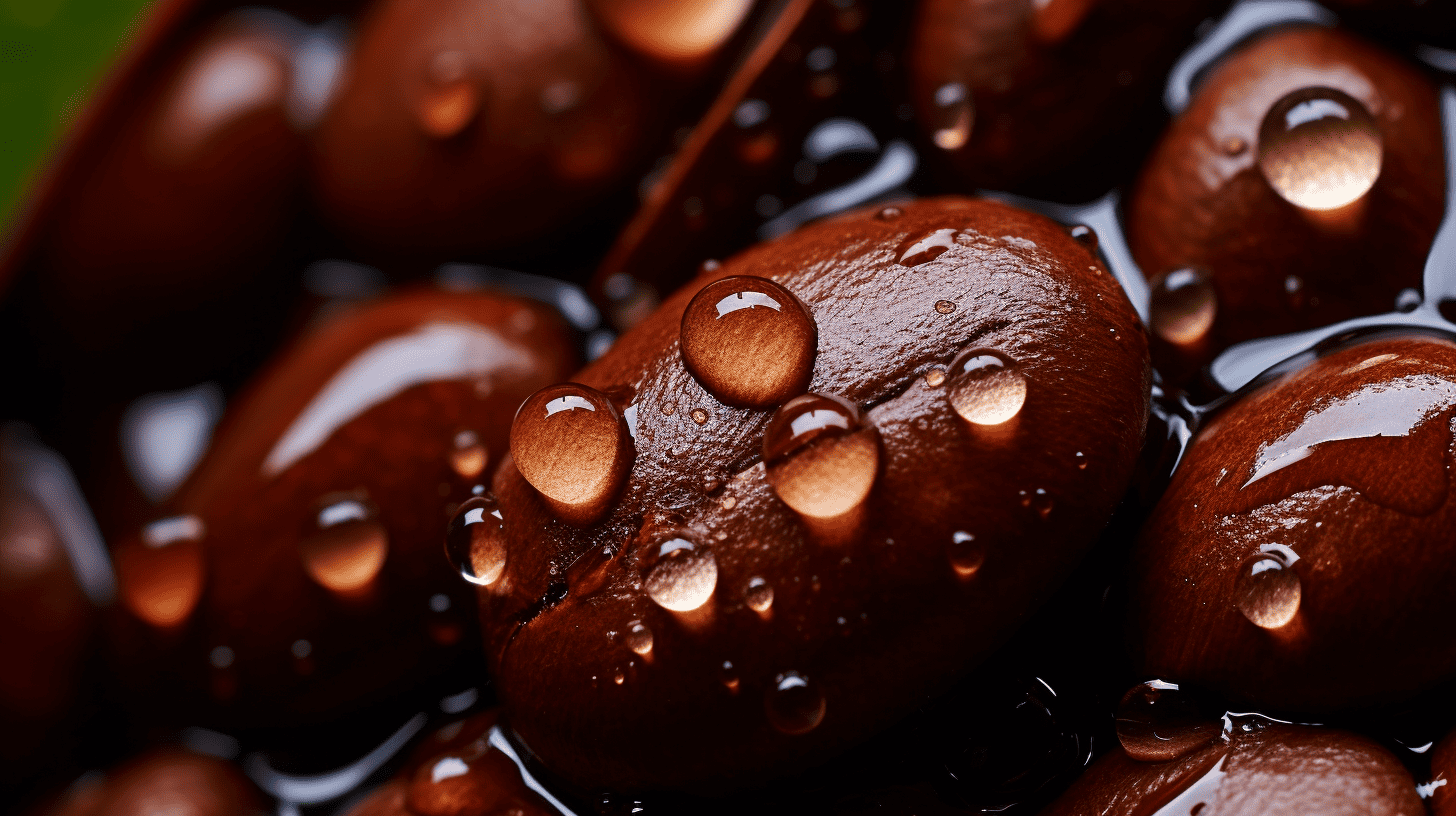Are you in a constant battle deciding between coffee or energy drink to fuel your daily grind? Trust me, I’ve been there, juggling the pros and cons of each. Research shows that most energy drinks contain surprisingly less caffeine than coffee.
This blog will offer enlightening comparisons between these two popular pick-me-ups, backed by scientific facts so that you can make an informed choice. Ready for a deep dive into the buzz world? Let’s get brewing!
Key Takeaways
- Coffee generally contains less caffeine than energy drinks, with an average of 18 milligrams per ounce compared to the 10 milligrams per ounce in energy drinks.
- Coffee has no calories on its own, making it a better choice for those watching their calorie intake. Energy drinks often have added sugar and can be high in calories.
- Coffee is made with natural ingredients and has a better taste compared to energy drinks, which often contain additives and artificial sweetness. Plus, coffee is more cost-effective than energy drinks.
Coffee Vs Energy Drinks – What’s the Difference?
Coffee and energy drinks may both provide a caffeine boost, but they differ in terms of caffeine content, calories, sugar levels, and nutrient composition.
Caffeine content
Coffee and energy drinks pack a caffeine punch. But there’s a difference in how much they contain. On average, an ounce of coffee has 18 milligrams of caffeine. Energy drinks usually have less at about 10 milligrams per ounce.
Yet, some energy drinks can hold between 100 to 300 milligrams of caffeine in one serving! It is safe for most folks to have up to 400 milligrams of caffeine each day. Keep this in mind when picking your pep-up drink!
Calories
When it comes to calories, coffee is the winner. Coffee has no calories on its own, making it a great choice for those who want to watch their calorie intake. On the other hand, energy drinks often contain a lot of added sugar, which means they can be high in calories.
It’s important to note that the number of calories in energy drinks can vary depending on the brand and serving size. So if you’re looking for a low-calorie option, coffee is definitely the way to go.
Sugar
I prefer coffee over energy drinks because coffee has no calories and usually contains less sugar. Energy drinks, on the other hand, often have a lot of added sugar which can contribute to weight gain and other health issues.
It’s important to remember that consuming too much sugar can lead to problems like tooth decay and increased risk of diabetes. That’s why I choose coffee as my beverage of choice when I want a pick-me-up without all the extra sugar.
Nutrients
Coffee and energy drinks have different nutrient profiles. While coffee doesn’t contain many nutrients, it does offer a small amount of vitamins and minerals like potassium, magnesium, and niacin.
It also contains antioxidants that can help protect your cells from damage. On the other hand, energy drinks often contain added nutrients like B-vitamins, amino acids, and herbal extracts.
However, it’s important to note that these added nutrients are usually in very small amounts and may not provide significant health benefits. When choosing between coffee and energy drinks based on their nutrient content alone, neither option stands out as particularly nutritious.
Benefits of Coffee Over Energy Drinks
Coffee has zero calories compared to the high sugar content in energy drinks, making it a healthier choice for those watching their weight. Plus, coffee is more cost-effective and made with natural ingredients, resulting in a better taste overall.
Read on to discover more reasons why coffee is the superior option!
No calories
Coffee is a great choice if you’re watching your calorie intake. Unlike energy drinks which can be loaded with sugar, coffee has no calories. This means that you can enjoy your cup of joe without worrying about adding extra pounds.
Plus, it’s a healthier option when compared to energy drinks that often contain artificial additives and high amounts of sugar. So if you want a beverage that won’t derail your diet, go for coffee – it’s calorie-free and delicious!
More cost effective
Coffee is a more cost-effective beverage option compared to energy drinks. While energy drinks can be quite pricey, especially if you consume them regularly, coffee is generally more affordable.
You can easily make a cup of coffee at home using ground coffee beans or instant coffee, saving you money in the long run. On the other hand, energy drinks often come in single-serving cans or bottles which can add up in cost over time.
So if you’re looking for a budget-friendly pick-me-up, coffee is the way to go.
Natural ingredients
I prefer coffee over energy drinks because it contains natural ingredients. Unlike energy drinks, which often have additives and supplements, coffee is made from ground coffee beans and water.
I like knowing that I’m drinking something that comes directly from nature without any extra stuff added to it. Plus, the taste of coffee is just so much better in my opinion. It’s rich and comforting, while some energy drinks can be overly sweet or artificial tasting.
So when I need a pick-me-up, I’ll always go for a cup of coffee with its natural goodness instead of an energy drink loaded with additives and sugars.
Better taste
I must say, one of the things I love about coffee is its amazing taste. Whether it’s a bold and rich espresso or a smooth and creamy latte, there’s something truly satisfying about that first sip.
The flavor profiles can be diverse, with notes of chocolate, caramel, fruitiness, or even nuttiness depending on the beans and how they’re roasted. Energy drinks just can’t compare in terms of taste.
They often have an artificial sweetness that can be overpowering and leave a strange aftertaste in your mouth. Coffee offers a more natural and complex flavor experience that keeps you coming back for more.
Coffee Around the World
Coffee Around the World takes us on a journey to Ethiopia, the birthplace of coffee, where its rich flavors and history enchant coffee lovers everywhere.
Ethiopia, the birthplace of coffee
Ethiopia holds a special place in the world of coffee because it is considered to be the birthplace of this beloved beverage. The country has a rich history and cultural connection to coffee, with many traditional ceremonies and rituals centered around its preparation and consumption.
Ethiopian coffee is known for its unique flavors and aromas, often described as fruity, floral, or wine-like. Farmers in Ethiopia take great pride in cultivating high-quality coffee beans that are sought after by coffee connoisseurs worldwide.
So if you’re a fan of coffee, exploring the origins of this drink in Ethiopia can be an exciting journey filled with delicious discoveries.
Indonesia
Indonesia is known for its rich coffee culture. The country is the fourth-largest producer of coffee in the world, with a wide variety of coffees grown on its islands. One popular type of Indonesian coffee is Kopi Luwak, which is made from beans that have been eaten and then excreted by civet cats.
This unique process gives the coffee a distinctive taste. Another famous Indonesian coffee is Sumatran coffee, which has a heavy body and low acidity. If you’re a coffee enthusiast, Indonesia is definitely a place worth exploring for its diverse and flavorful coffees.
Papua New Guinea
Papua New Guinea is known for its rich and flavorful coffee. The country has the perfect climate and fertile soil for growing high-quality Arabica beans, which are favored by many coffee enthusiasts.
In fact, Papua New Guinea is one of the top producers of specialty coffee in the world. The unique growing conditions, including high altitudes and volcanic soil, contribute to the distinct flavor profiles of their coffee.
Coffee from Papua New Guinea often has fruity and floral notes, making it a must-try for any coffee lover looking for something different.

Tips For Choosing Coffee While Travelling
When traveling, it’s important to choose your coffee wisely. Consider the source of your water, identify contaminants you need to remove, and think about filter capacity and replacement frequency – all crucial factors for a great cup of joe on the go.
Read more for helpful tips!
Consider the source of your water
When choosing coffee while traveling, it’s important to consider the source of your water. The quality and cleanliness of the water used in brewing coffee can greatly impact its taste and safety.
Make sure you are aware of the local water sources in the area you’re visiting and whether they are safe for consumption. It’s also a good idea to identify any potential contaminants that may be present in the water and take steps to remove them, such as using a portable filter or purchasing bottled water.
By being mindful of the source of your water, you can ensure that your coffee is not only delicious but also safe to drink during your travels.
Identify the contaminants you need to remove
To ensure that your coffee is safe and clean while traveling, it’s important to identify the contaminants you need to remove. This can vary depending on the location and quality of water sources.
Common contaminants include sediment, chlorine, heavy metals, pesticides, and bacteria. To remove these contaminants, consider using a water filter or purifier specifically designed for travel purposes.
It’s also important to check the filter capacity and replacement frequency to ensure proper functionality throughout your trip. By taking these precautions, you can enjoy a delicious cup of coffee without worrying about any potential health risks from contaminated water.

Consider filter capacity and replacement frequency
When choosing a coffee filter while traveling, it’s important to consider the capacity of the filter and how often it needs to be replaced. This will ensure that you have clean and safe drinking water wherever you go.
Look for filters that can handle a large volume of water, so you don’t have to constantly refill them. Additionally, check the replacement frequency of the filters to make sure they are convenient for your travel plans.
Considering these factors, you can easily find a coffee filter that meets your needs and provides great-tasting coffee wherever you are exploring.
Conclusion on Coffee Or Energy Drink
In conclusion, when it comes to choosing between coffee and energy drinks, there are some key differences to consider. Coffee has no calories, is more cost-effective, and contains natural ingredients with a better taste.
However, energy drinks may provide a quicker boost of caffeine for those who need instant wakefulness or alertness. Ultimately, the choice between coffee and energy drinks depends on personal preference and individual health needs.
FAQs on Coffee Or Energy Drink
1. Is coffee or an energy drink better for staying awake?
Coffee is generally considered a better choice for staying awake as it contains natural caffeine and antioxidants, whereas energy drinks often have higher levels of artificial stimulants and sugar.
2. How much coffee or energy drink can I consume in a day?
It is recommended to limit your coffee consumption to 2-4 cups (8-16 ounces) per day, while energy drinks should be consumed sparingly due to their high caffeine content, with no more than one can (8-ounce) per day.
3. Can drinking too much coffee or energy drinks be harmful?
Yes, consuming excessive amounts of coffee or energy drinks can lead to side effects such as increased heart rate, restlessness, anxiety, dehydration, and difficulty sleeping. It’s important to consume them in moderation.
4. Are there any healthier alternatives to coffee or energy drinks for boosting alertness?
Yes, you can opt for healthier alternatives like green tea which contains less caffeine but still provides an energy boost. Other options include herbal teas like peppermint or engaging in physical activity such as stretching exercises or taking a short walk.





Leave a Reply